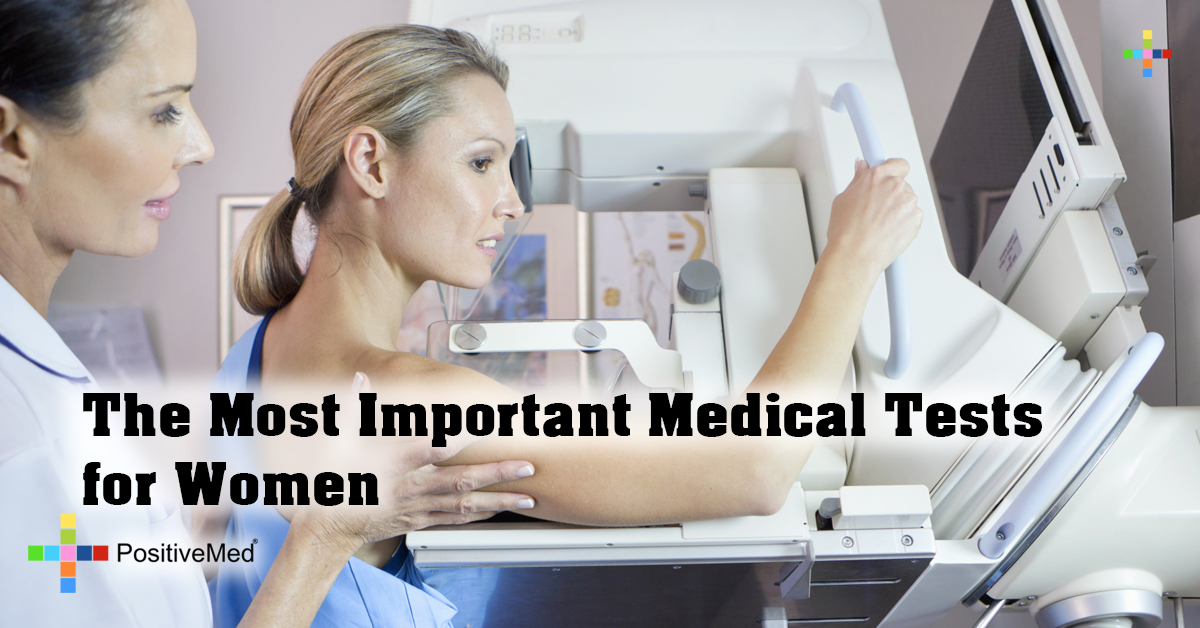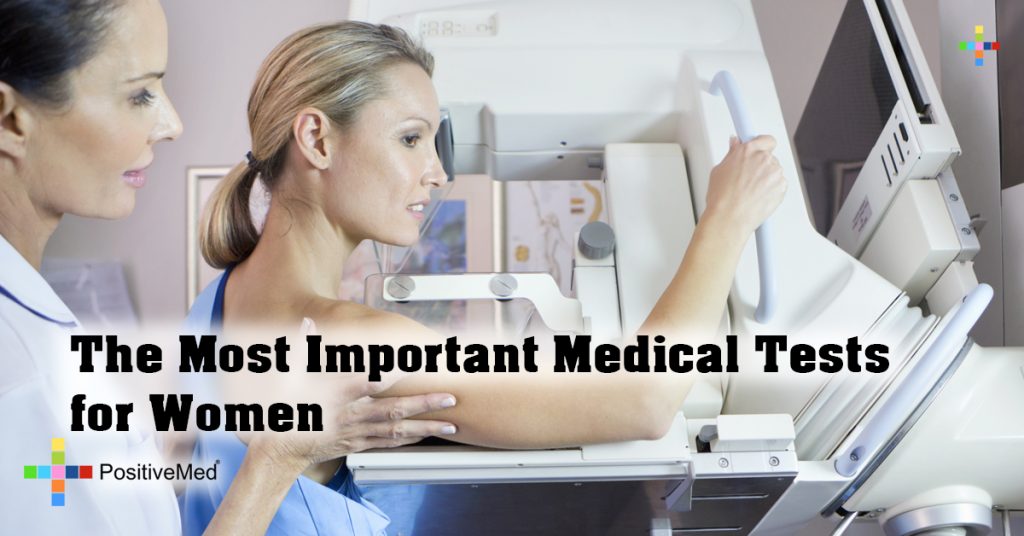
The Most Important Medical Tests for Women
[nextpage title=”…”]
Another important way to guard your health is to talk to your doctor about getting screening tests to detect problems in the early stages, so they don’t lead to more serious medical issues. Women should talk to their doctors about getting the most important medical tests at the appropriate ages to ensure that they remain healthy and active long into their later years.
1 – Pap Test for Cervical Cancer ScreeningThe Pap test is the standard test to detect cervical cancer screening in women. It tests for the presence of cancerous cells at the mouth of the womb, as well as for abnormal cells that may become cancerous in the future. The physician, usually a gynecologist, will scrape off a small sample of cells from the cervix. These are then sent to a laboratory for analysis.
2 – Mammogram for Breast Cancer ScreeningA mammogram is a special type of x-ray that can detect abnormalities in breast tissue that could be cancerous. It provides a picture of the tissue inside the breast. When abnormalities appear, the physician will order additional tests. Getting a mammogram is a simple test that only takes a few minutes, but it can save women’s lives.
3 – Fecal-Occult Tests for Colorectal Cancer Screening
 A fecal-occult blood test detects hidden blood in a sample of feces to detect the possibility of cancer in the intestinal system. The test is very simple and painless. Individuals place a small amount of feces on a card that can be tested by color coding or sent to a laboratory for analysis.
A fecal-occult blood test detects hidden blood in a sample of feces to detect the possibility of cancer in the intestinal system. The test is very simple and painless. Individuals place a small amount of feces on a card that can be tested by color coding or sent to a laboratory for analysis.
4 – Blood Pressure TestBlood pressure is the measurement of the strength of the flow of blood through the blood vessels in your body. The instrument used to measure blood pressure is called a sphygnomanometer. It is a critical test is preventing strokes that can occur due to high blood pressure. The test is easy and painless.
RELATED ARTICLE: A Type of Testing That Helped Her Prevent Cancer
[/nextpage] [nextpage title=”…”]
5 – Lipid Panel for Cholesterol ScreeningCholesterol is a component in the blood that is important for normal cellular function. Your doctor can order a blood test called a lipid panel that measures the amount of cholesterol in your blood. If your lipid levels are high, your doctor can prescribe medications to lower your cholesterol.
6 – Blood Glucose Test for Diabetes ScreeningGlucose is a component in human blood that helps to metabolize food properly. Insulin, which is made in the liver, ensures that excess glucose is removed from the body so that it doesn’t cause damage. When not enough insulin is produced, the glucose levels rise, causing damage to blood vessels in the body, which can lead to heart disease, stroke, loss of vision, circulatory problems and other medical issues. This condition is called diabetes, and a number of different glucose tests can be used to detect this condition.
7 – Bone Density Test for Osteoporosis ScreeningA bone density test, called DEXA, uses a small amount of x-ray to detect the thickness of the bone at certain points of the body. It detects the presence of osteoporosis or thinning of bones, a condition that is common in older women. The test is easy and painless. It can be done at a hospital or in a doctor’s office.
8 – Hepatitis C Screening TestHepatitis C is one form of hepatitis that can have a serious impact on your health. Individuals may have acquired hepatitis C through blood transfusions in the years before blood was routinely tested for this virus. The test detects the presence of the virus in the blood.
9 – Depression Screening
 The medical community has recently decided that depression screenings should be done as part of physical examinations to detect the problem and apply appropriate treatment. Your doctor will ask you a series of questions that help to reveal whether you are having problems with depression.
The medical community has recently decided that depression screenings should be done as part of physical examinations to detect the problem and apply appropriate treatment. Your doctor will ask you a series of questions that help to reveal whether you are having problems with depression.
If you have questions about whether you need all of these medical tests, talk to your doctor to learn more about the importance of these medical tests for your individual health needs.
[/nextpage]








